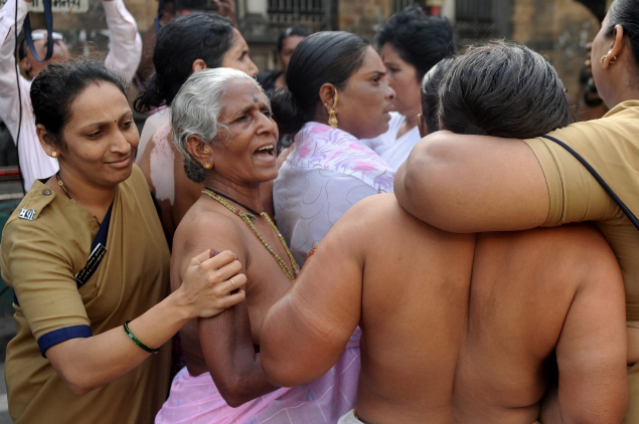4 lakh five thousand. 4 lakh five thousand and one. Four lakh five thousand and two.
I hereby start the count of women forced into sanctioned rape.
Their costs come predecided, no negotiation for their fates.
Chant my dear, chant Yellema's name, place your hand over the flame.
“Ruko. mere Saath yeh nahi”
Her sari's pleats had aroused his knife. His knife of flesh. His knife masochism.
She panicked. She screamed. She cried. She bled.
She retraced from the body of a child.
Down to her bruised knees to the duty of a sex slave.
Amidst the myths and mythologies that surround the land, her freedom had become one too.
The cult of dedicating girls to temples by marrying them off to a Goddess is prevalent all over Indian by different forms and names.
Yellema was a Goddess who "compromised her chastity" by solely glancing at the reflection of Gandharva, a heavenly being in a pond.
With this fleeting glance, she lost her "faithfulness" to her husband and ran off to a nearby forest. Here, she spent her time tucked beneath thick canopies with foliage veiling her and concealing her from the outside world.
It is in her "servitude and devotion" that thousands of women are dragged into devadasi and Jogini systems which are a form of religiously sanctioned abuse.
India is a veneer of freedom beneath which lies a matrix of systematic injustice and conscious oppression.
All are equal. However, some are more equal than others.
The devadasi system grants high-caste men free sexual access to Dalit women, which can under no circumstance be mistaken for the freedom to be sexually free.
With the weakening of feudal power relations since the mid 19th century, uprisings from and ideas about the legitimacy of the caste system emerging amongst the "lower" castes compelled the "sacred seven" to re-establish a system of caste-based prostitution.
The lower caste Devadasis had no way to escape this quicksand owing to lack of opportunities. This is also the case with the of Bedia and Bachra tribes and Nat community of Northern India.
Furthermore, the British personnel wanted some prostitutes to sate the desire of their army personnel and thus perpetuated this tradition into organized and intergenerational prostitution.
Post Independence, while in South India states were broken up, the fetters on Devadasis never did, literally.
Much like the British, the Indian Police has been known to make use of these Devadasis.
The law works to their disadvantage as it criminalises their action and not that of their patrons. Often, the police threaten to file charges under the act Karnataka Devadasi (Prohibition of Dedication) if a woman says no.
Although formally prohibited since independence, the practice of dedicating girls to a deity still survives in southern India in significant numbers and continues clandestinely.
These women are eventually auctioned off to urban brothels. Their children are vulnerable due to their birth status and they are subject to discrimination from all parts of society, from which their ‘holy’ status in no way shields them.
To make these women self-reliant, promotion of maternal and child health services, the spread of information about the damaging nature of the practice to elders, caste leaders and parents in vulnerable communities and housing construction or grants are essential.
Sugandha, a 16-year-old who loves to play 'Pithoo' and stitch in her free time was a former Devadasi.
"Our parents gave us birth and threw us on the street. Men came and used us, finished their jobs and went." This is how she described her life before being rescued by an NGO.
Let us ensure that there are no more Sugandhas or Joginis, or Mathamas in this world. ( Yes, some give up their name to be known merely as Mathamma or Jogini, the name of their Goddesses a breach of their right to a name and personal identity.

